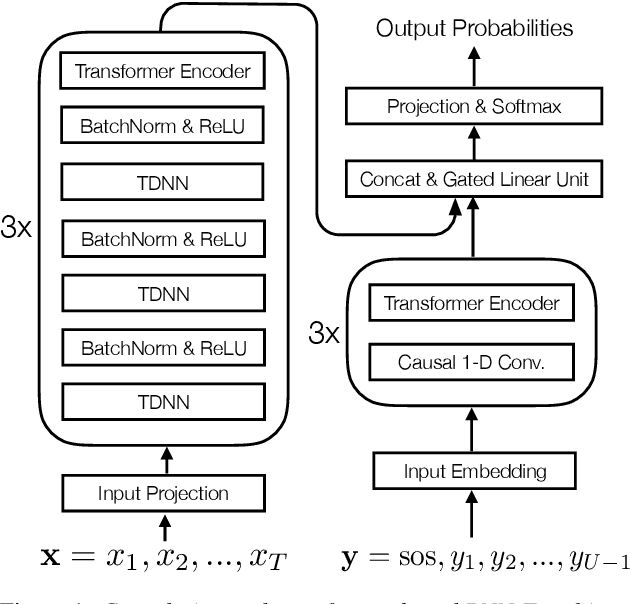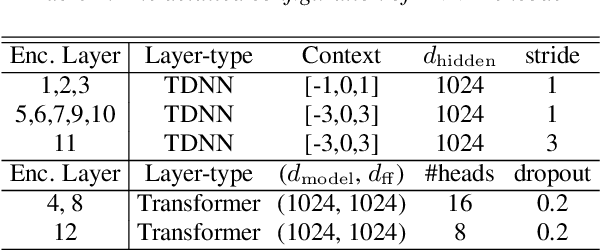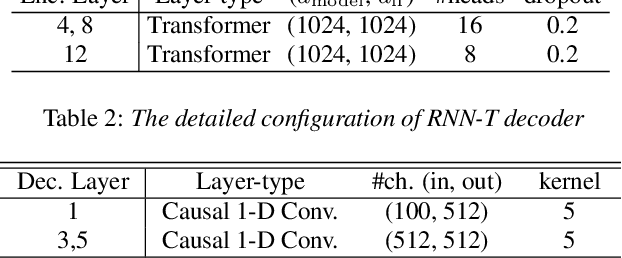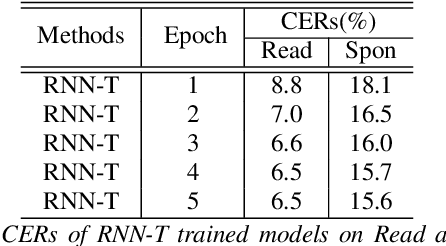Minimum Bayes Risk Training of RNN-Transducer for End-to-End Speech Recognition
Paper and Code
Nov 28, 2019



In this work, we propose minimum Bayes risk (MBR) training of RNN-Transducer (RNN-T) for end-to-end speech recognition. Specifically, initialized with a RNN-T trained model, MBR training is conducted via minimizing the expected edit distance between the reference label sequence and on-the-fly generated N-best hypothesis. We also introduce a heuristic to incorporate an external neural network language model (NNLM) in RNN-T beam search decoding and explore MBR training with the external NNLM. Experimental results demonstrate an MBR trained model outperforms a RNN-T trained model substantially and further improvements can be achieved if trained with an external NNLM. Our best MBR trained system achieves absolute character error rate (CER) reductions of 1.2% and 0.5% on read and spontaneous Mandarin speech respectively over a strong convolution and transformer based RNN-T baseline trained on ~21,000 hours of speech.
 Add to Chrome
Add to Chrome Add to Firefox
Add to Firefox Add to Edge
Add to Edge